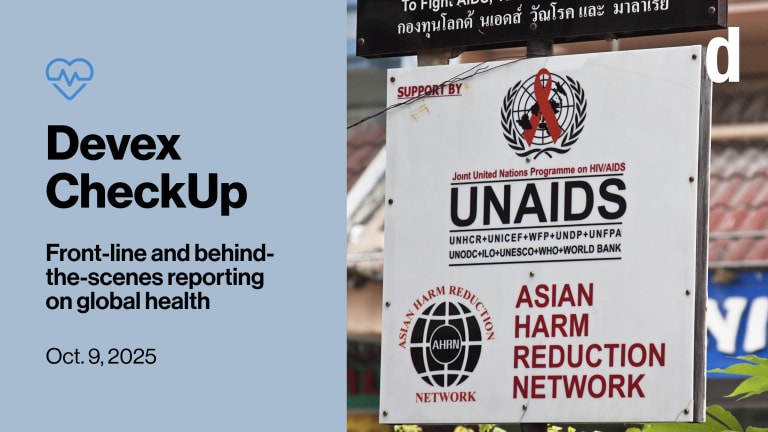Facing a major funding crisis, UNAIDS is cutting its workforce by more than half and scaling back its country presence — a shakeup that staff fear could weaken the global HIV response at a critical time.
According to a communique from senior leadership, seen by Devex, the number of full-time positions will be cut by more than half, from 608 to around 280, as part of a sweeping restructuring. The program will also reduce its country presence from 75 to 36 countries, with some offices serving multiple countries and others manned by a single person within the U.N. Resident Coordinator’s office.
Departments such as external relations and management are also merging, global support offices will be based in Bonn, Nairobi, Johannesburg, and Bangkok, and UNAIDS secretariat will have a reduced presence in Geneva, focused on “leadership, governance and resource mobilization while technical experts will move closer to where the need is most,” the program said in a statement to Devex.








